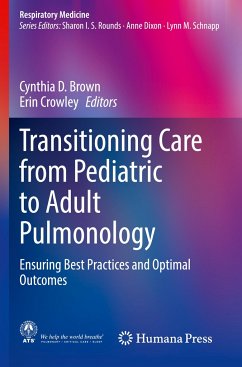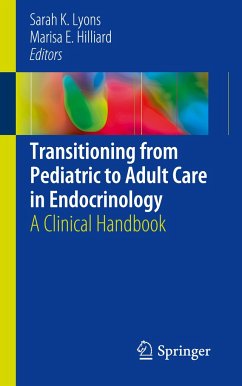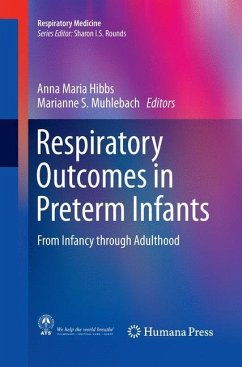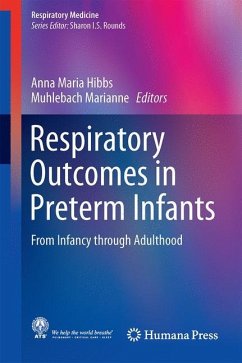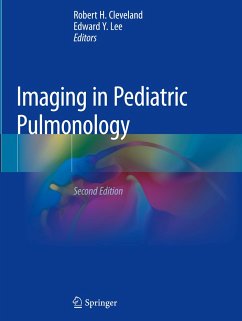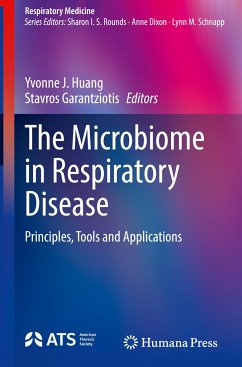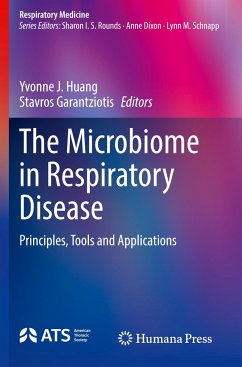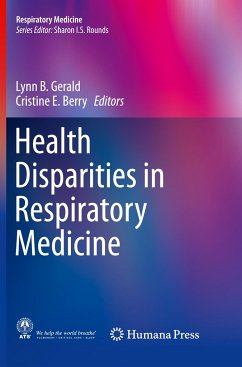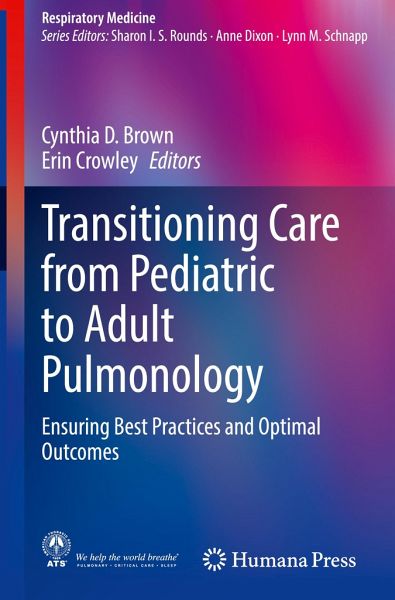
Transitioning Care from Pediatric to Adult Pulmonology
Ensuring Best Practices and Optimal Outcomes
Herausgegeben: Brown, Cynthia D.; Crowley, Erin

PAYBACK Punkte
53 °P sammeln!
This book addresses an unmet need in the care of adolescents and young adults with lung disease. The increasing survival of young adults with childhood-onset pulmonary conditions is a testament to major advances in treatments and health care delivery. With the increase in survival of children with chronic respiratory conditions, there is a need for formalized transition programs to integrate adolescents and young adults into the adult model of care. This book helps fill gaps in knowledge to best achieve that initiative.This book takes a comprehensive approach to transition care in pulmonary me...
This book addresses an unmet need in the care of adolescents and young adults with lung disease. The increasing survival of young adults with childhood-onset pulmonary conditions is a testament to major advances in treatments and health care delivery. With the increase in survival of children with chronic respiratory conditions, there is a need for formalized transition programs to integrate adolescents and young adults into the adult model of care. This book helps fill gaps in knowledge to best achieve that initiative.
This book takes a comprehensive approach to transition care in pulmonary medicine by satisfying the following objectives: 1) Understand the barriers and developmental challenges in the transition from pediatric to adult care for patients with chronic childhood-onset pulmonary disease; 2) Learn about successful evidence based transition models in pulmonary disease populations, focusing on key process and outcome measures for success; and 3) Develop knowledge to design, implement, and measure a transition program based on evidence and expert opinion. In the first section, the book outlines general principles of transition care that are applicable to all patients regardless of underlying disease process and describe best practices for performing necessary research in transition care. In the second section, the book explores psychosocial factors known to play a role in affecting transition outcomes, including parental support, psychological development, and socioeconomic factors. In the final section, transition outcomes and best practices in specific respiratory diseases are outlined. With a focus on populations with chronic pulmonary disease, this book highlights the challenges and barriers of transition, reviews model systems to understand the essential components of a transition program, and provides evidence-based information to navigate these barriers and achieve successful outcomes during transitionto adulthood.
This is an ideal guide for pediatric and adult pulmonary providers caring for patients who are transition age, as well as multidisciplinary care team members who work with these providers in care models on transition projects to improve the transition process.
This book takes a comprehensive approach to transition care in pulmonary medicine by satisfying the following objectives: 1) Understand the barriers and developmental challenges in the transition from pediatric to adult care for patients with chronic childhood-onset pulmonary disease; 2) Learn about successful evidence based transition models in pulmonary disease populations, focusing on key process and outcome measures for success; and 3) Develop knowledge to design, implement, and measure a transition program based on evidence and expert opinion. In the first section, the book outlines general principles of transition care that are applicable to all patients regardless of underlying disease process and describe best practices for performing necessary research in transition care. In the second section, the book explores psychosocial factors known to play a role in affecting transition outcomes, including parental support, psychological development, and socioeconomic factors. In the final section, transition outcomes and best practices in specific respiratory diseases are outlined. With a focus on populations with chronic pulmonary disease, this book highlights the challenges and barriers of transition, reviews model systems to understand the essential components of a transition program, and provides evidence-based information to navigate these barriers and achieve successful outcomes during transitionto adulthood.
This is an ideal guide for pediatric and adult pulmonary providers caring for patients who are transition age, as well as multidisciplinary care team members who work with these providers in care models on transition projects to improve the transition process.



